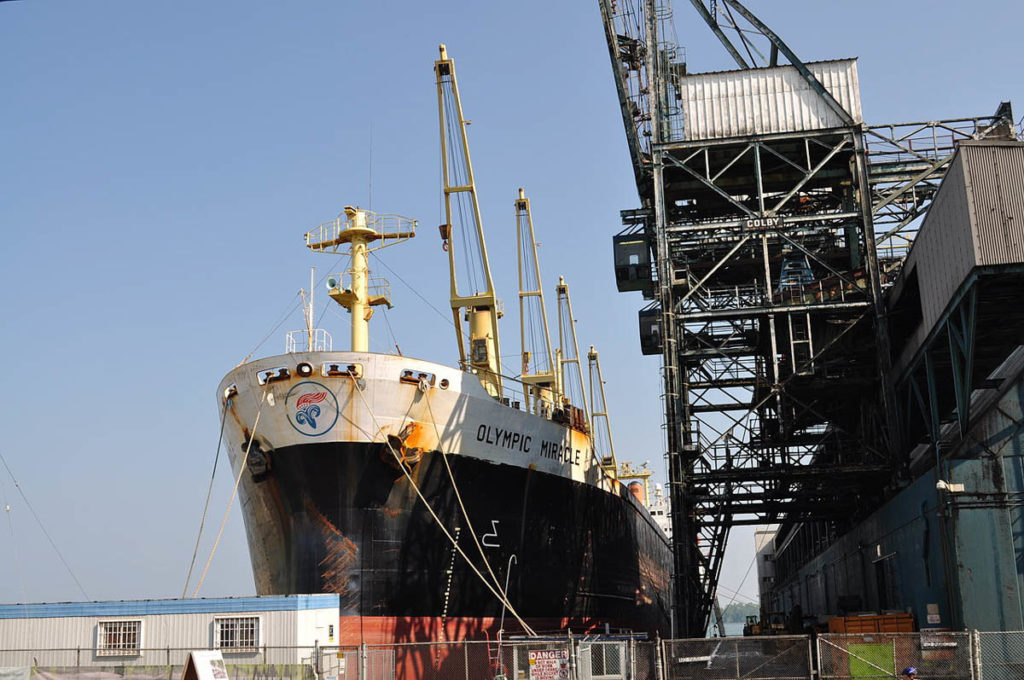How sweet it is!
Per year, Canada produces around 1.2 million tonnes of refined sugar. Raw cane sugar is shipped in bulk to cane sugar refining operations in Vancouver, Toronto, and Montreal, where about 94 percent is processed. The rest is processed beet sugar made in Alberta from locally produced sugar beets. The processed sugar, whether made from cane or beet, is the same: pure sucrose. In Toronto, the Redpath Sugar Refinery is a sugar storage, processing, and museum complex.
The sugar processed at the plant comes mostly from the Caribbean and Brazil, and is shipped through the Saint Lawrence Seaway by ships known as “sugar ships.”
For the ocean voyage, “sugar ships” are filled with raw, unprocessed sugar collected in Brazil and/or the Caribbean. Raw sugar is shipped in two forms: bulk (a method similar to loading grain) and break-bulk. Raw sugar is packed as a break-bulk cargo in woven natural materials (such as jute) or woven plastic bags with a plastic inner bag that is impervious to water vapour and provides contamination protection. Sugar cargo in bags must be stowed and secured in the mode of transportation in such a way that it does not move or change during transportation. If volume loss and quality deterioration are to be avoided, the packages must not be damaged by other cargo. Temperatures suitable for travel: no lower limit then – 25°C.
The “Sugar Ship” is unloaded by Redpath’s cranes when it arrives at their Toronto port. With the help of a smaller digger, these cranes reach inside and scoop it out. It takes about four days to unload, and Redpath is held in raw sugar for ten days.
Hundreds of ships transported two million tonnes of cargo to the port of Toronto, according to a 2015 statistic. More than half of that was raw sugar delivered to the Redpath Sugar Factory. The factory, which has been in operation since 1959, employs 250 people and refines around 2,000 tonnes of sugar per day, seven days a week.
How sweet it is, indeed!







